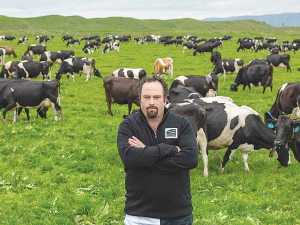Farmers are feeling more satisfied with their banks, but the situation remains fragile, says Federated Farmers.
Nearly 700 farmers responded to Federated Farmers' May survey, with 60% of them 'satisfied' or 'very satisfied' with their bank. That's up from 53% in the November 2024 survey but well shy of the 80% peak rating recorded in 2017.
In the survey, 61% of farmers rated their bank's communication as good or very good - the best result since 2020.
Just on 18% of farmers said they were feeling undue bank pressure, down from 24% six months earlier and the lowest rating recorded since 2018.
Federated Farmers banking spokesperson Richard McIntyre says it's good to see things are improving but farmers' trust in their banks is still fragile.
"Where farmers have given positive feedback in the survey, it's usually about their individual managers, not bank policy. When those individual staff leave, that trust can erode quickly," he says.
"It's helped that over the last year, banks have been grilled by the select committee inquiry on banking competition that Federated Farmers pushed for," McIntyre says.
He says that there has been a lot of scrutiny and banks have been feeling the pressure.
"So, it's good to see them start to lift their game as a result.
"Many farmers said bank pressure has eased over the past six to 12 months, with some noting their bank had become more understanding or backed off earlier demands," McIntyre says.
However, for those still under pressure, the situation remains serious.
McIntyre says a few farmers shared difficult stories with them, including being forced out of farming altogether.
The survey shows interest rates on farm mortgages have also eased by about 1% since late 2024 to an average of 6.52%.
"Even so, we're still very concerned that, compared with average residential mortgage interest rates, farm mortgage interest rates are around 0.92% higher - and were about 1.12% higher late last year," McIntyre says.
From 2016 until 2021, the margin of difference hovered between about 0.6% and 0.35%.
"These don't seem like big differences, but when total agricultural lending is around $61 billion, a 1% margin difference puts $600 million of extra interest costs on the sector each year.
"It's crazy how much more money farmers are having to shell out to the banks in interest payments.
"Part of the problem is the unnecessarily conservative Reserve Bank capital requirements, and the recent decision to review those settings is very welcome," McIntyre says.



















